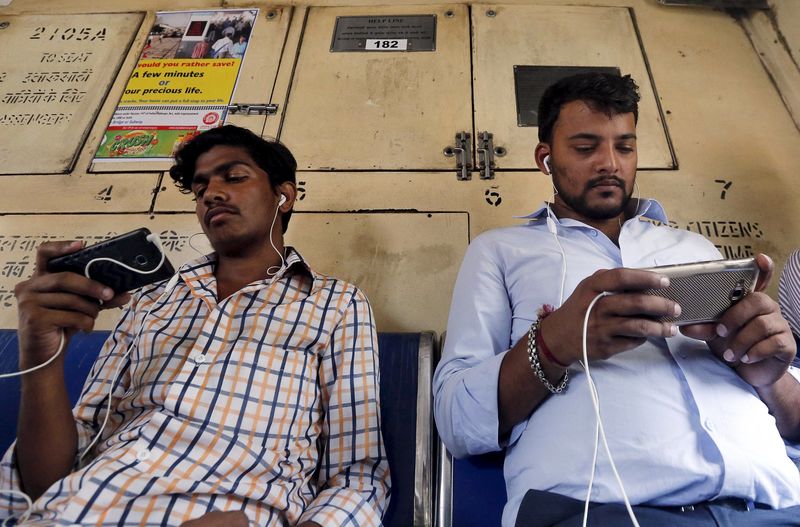This post was originally published on this site
https://i-invdn-com.akamaized.net/news/LYNXNPEAAP0BV_M.jpg © Reuters. Big broadcasters in India warn new tariff rules could hit services
© Reuters. Big broadcasters in India warn new tariff rules could hit servicesBy Shilpa Jamkhandikar and Alexandra Ulmer
MUMBAI (Reuters) – Some of the biggest television broadcasters operating in India joined forces on Friday to criticize new government regulations that impose restrictions on pay-TV charges, saying the move could put some channels out of business.
Senior executives from India’s Zee Entertainment (NS:), Viacom18 Media, Sony Corp’s (T:) local unit, The Walt Disney Co (N:) and its TV network Star India, got together to brief the media in Mumbai and said excessive regulation will also crimp their ability to keep up with technological advances.
“We’re evaluating how we can challenge this,” said N.P. Singh, Managing Director and CEO for Sony Pictures Networks India.
The Telecom Regulatory Authority of India (TRAI) this month ordered direct-to-home and cable operators to double the number of channels they offer by charging a basic “network capacity fee” to 200, and capped the charges for additional channels. It also reduced the price ceilings for some channel offerings.
TRAI’s decision, which comes in force from March 1, will reduce customers’ monthly bills but adversely hit the revenues and profitability of broadcasters, according to the research arm of ratings agency ICRA.
During Friday’s event, industry executives also said the regulations will further squeeze India’s paid television industry which was already battling intense competition from video streaming firms such as Netflix (O:) and Amazon’s (O:) Prime Video.
“The long term effects of this are going to be extremely destructive. I don’t see a case of existence for the smaller channels … most of them will have to shut shop,” said Uday Shankar, Star India’s chairman.
TRAI’s new tariff regulations come less than a year after it first asked broadcasters to price channels individually, rather than grouping them into packages, so as to allow customers to better make selections.
The move, however, was marred by confusion around implementation and forced the TRAI to review the regulations.
TRAI’s chairman, R.S. Sharma, has said the new revised regulations announced this month were merely “fine-tuning” of the previous ones, and the regulator was open to hearing the industry’s grievances.
A government official said TRAI will review the industry’s remarks made on Friday before commenting further.
“TRAI’s regulatory prescriptions may kill the paid broadcast TV model, impact a large section of the creative ecosystem and compound India’s economic troubles,” said Vivan Sharan, a partner at India’s Koan Advisory Group which advises several big media companies.
Television advertising grew at a slower-than-expected rate of 12.4% in fiscal year that ended March 2019, according to global consultants KPMG, as companies have been spending less due to muted consumer sentiment in the country.
Fusion Media or anyone involved with Fusion Media will not accept any liability for loss or damage as a result of reliance on the information including data, quotes, charts and buy/sell signals contained within this website. Please be fully informed regarding the risks and costs associated with trading the financial markets, it is one of the riskiest investment forms possible.

